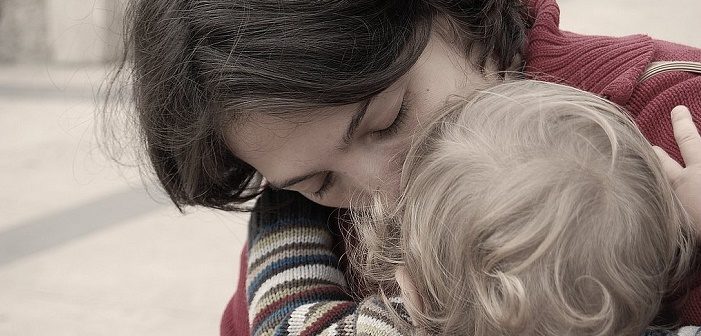Have you ever used your child’s photo as your profile picture on social media? Perhaps you know someone who just had a baby and set their baby’s photo as their profile picture.
I know I had used my firstborn’s photo on Facebook, WeChat, and Instagram once upon a time. At the time, I thought people would rather look at my adorable baby (alright, so I wanted to show him off) than an old, outdated profile photo. After all, my low post-partum self-esteem wouldn’t allow me to post a new photo of myself, especially when taking a nice photo would require so much effort (showering, putting on makeup, brushing my hair…)
Turns out, changing your profile photo to your child’s shows a shift in your identity as a new mother. Sarah Schoppe-Sullivan noticed this as she scrolled through her Facebook feed, leading her to hypothesize that the shift might cause depression when combined with excessive posts on social media.
“What these mothers are saying is that my child is central to my identity, at least right now,”
Schoppe-Sullivan, professor of human sciences and psychology at The Ohio State University, was already studying new parenthood, and decided to add more questions about motherhood and social media to her existing research. She questioned whether new mothers use social media outlets, such as Facebook, to validate their motherhood, and whether such attempts at validation result in depressive symptoms.
The results
Although her Schoppe-Sullivan’s participant pool was small, 98 percent of them posted photos of their infant on Facebook, of which 80 percent had changed their profile photo to a picture of their baby.
The results her study indicate that women posted more child-related updates on Facebook if they felt pressured to be perfect mothers and considered motherhood to be central to their identity. Said women were also more likely to replace their profile photo with a picture of their child.
Every mother tries to be the best they can, but those who strive for perfection may rely on others for validation, experiencing strong elation when they have many likes and positive comments. Conversely, they would also become depressed if their posts didn’t receive a lot of attention, or if they garner negative comments.
The study considers “depressive symptoms” to include having no appetite, feeling blue, and struggling with restless sleep.
Not a prescription to post less
While this data could easily be used to discourage parents from excessively posting their kids’ pictures and updates on social media as we discussed in our sharenting post, Schoppe-Sullivan didn’t ask these questions so that you could scroll down your feed with less poop stories.
Instead, Schoppe-Sullivan’s study results are meant to encourage new mothers to take a break. Fresh mothers have to recreate their identities, and the expectation of friends and acquaintances is to post a lot of pictures of their new family addition.
“This is an evolving way of representing your identity and your family and what’s important to you.”
Your social media feed sends a statement of who you are and what you care about, so working mothers feel especially pressured to prove that although they defy tradition, they still care about their kids the most. This show of affection and oversharing can be a source of stress for mothers who struggle to find time to begin with, and Schoppe-Sullivan gives parents tips on how to manage their social media updates:
- Turn off notifications. Have set times when you check social media, or decide when you’ll stop using your phone or computer for the day.
- Post less frequently by following a set schedule. Some recommend posting no more than three kid-related posts on WeChat per week.
- Find other ways to share your child’s photos and updates with family members and close friends. Private groups, invitation only photo albums, and slideshows/videos are just a couple of ideas.
Beijing expats at risk
The effect of social media pressure on parenting styles is especially dangerous for expat parents who are separated from close friends and family. Not only do traveling expats tend to share more photos and updates via social media outlets to keep in touch with faraway friends and family, but they also tend to lack a support network.
Global Times reported that new mothers in Beijing are more prone to post –partum depression (PPD) due to a lack of community support among other issues. Many new mothers remain at home, isolated by their language barrier, and stressed about Beijing conditions (e.g. pollution).
If said mothers were to rely on social media for validation and support, we can only imagine how much further they’d fall into depression when social media falls short of their expectations.
Photo: Flickr




